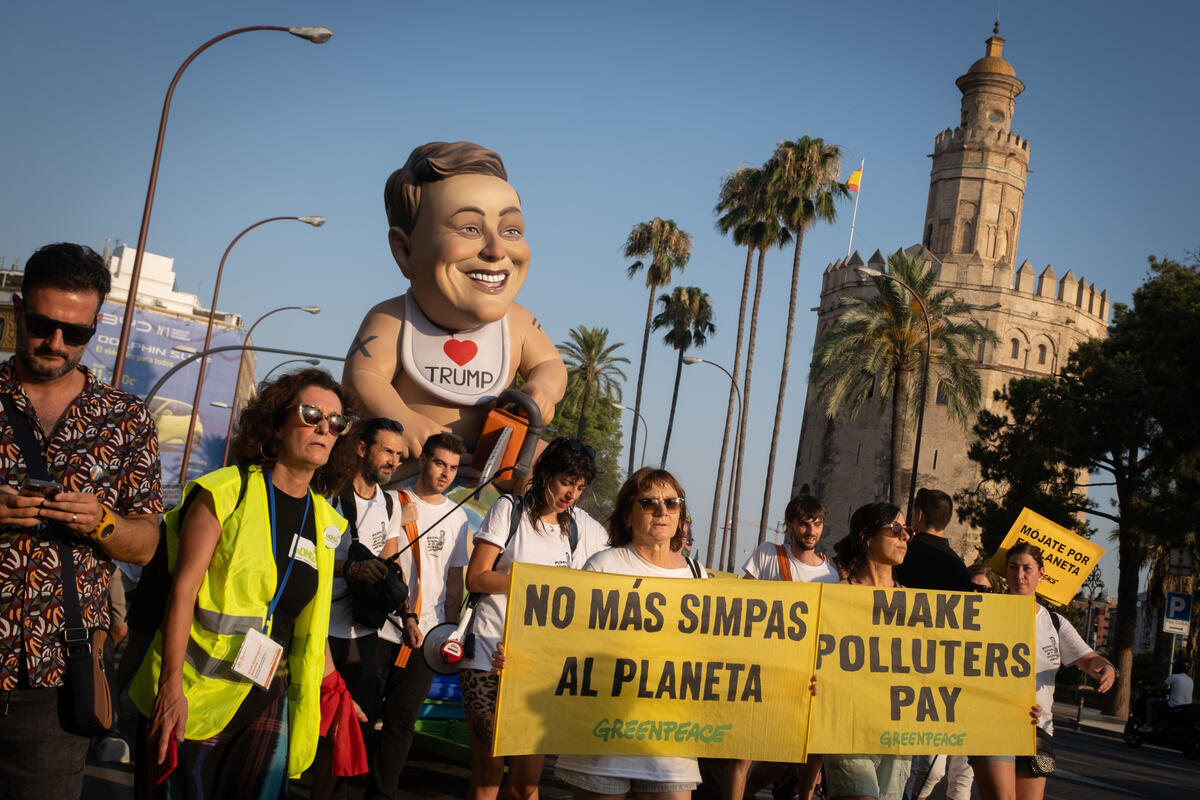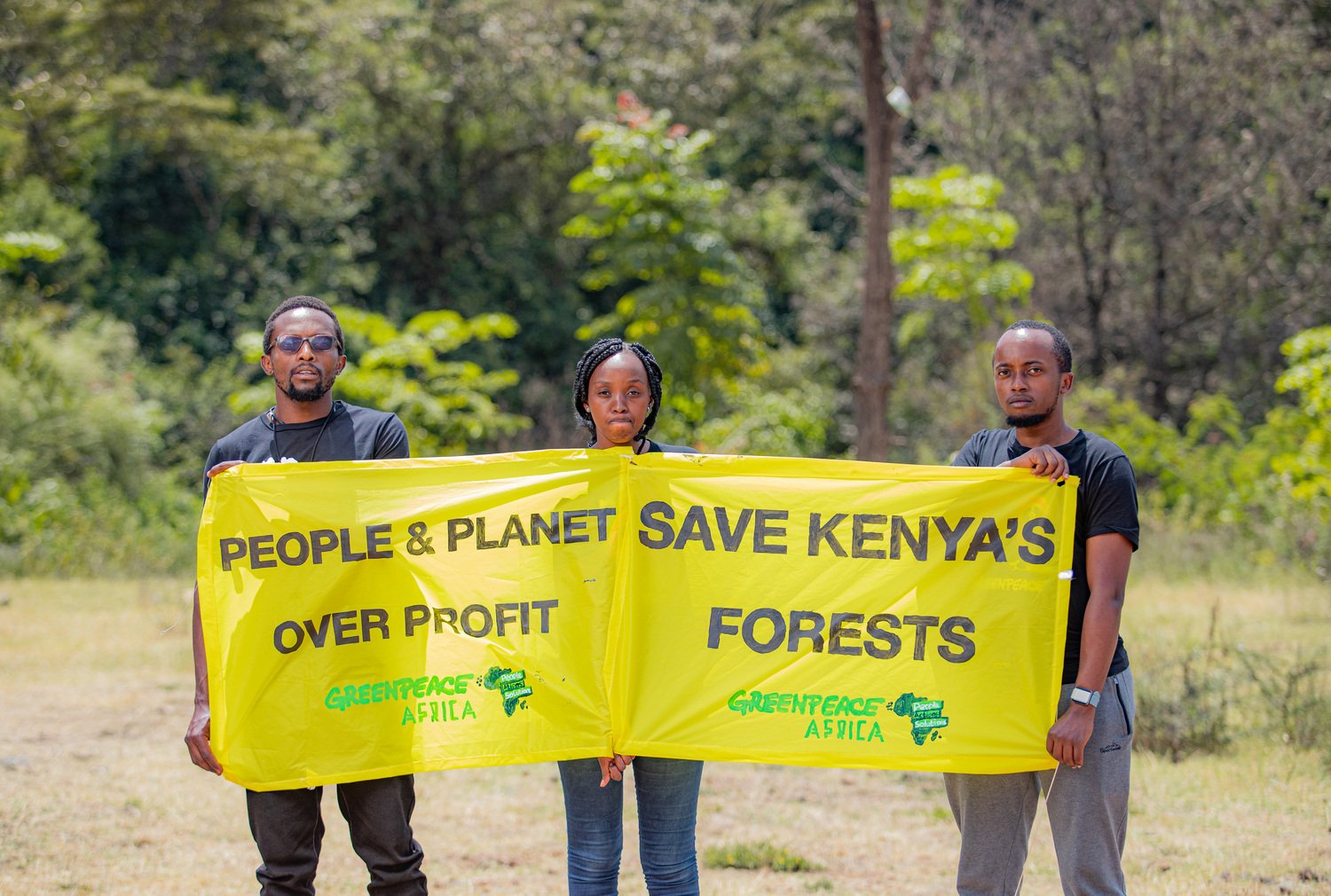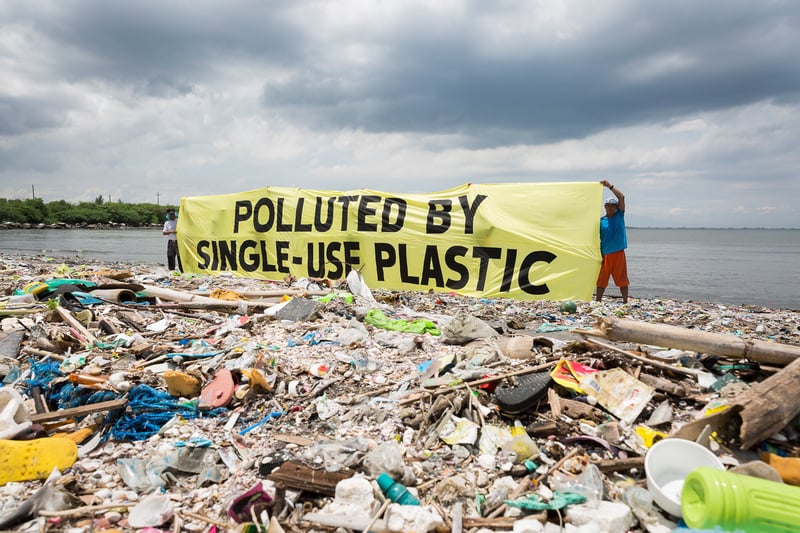Yaoundé, December 8, 2021 – In a new report, Greenpeace Africa and Green Development Advocates (GDA) expose the disastrous effects of the illegal Camvert oil palm plantation in Cameroon.
Entrepreneur Aboubakar Al Fatih’s company in the Campo and Niete districts of the Southern Region is violating the rights of indigenous and local communities and destroying their forests. Far from being the plan of salvation for the oil palm sector as presented by the company, the plantation is a nightmare for many local residents. “We don’t want Camvert,” he said. Désiré Ndongo, a notable from the village of Nkoelon, is categorical: “Agreeing to collaborate with Camvert is deceiving ourselves because in advance, we villagers are the losers,” he adds.
Greenpeace Africa and GDA visited 14 villages impacted by the installation of Camvert. The findings are clear: “The people live in permanent uncertainty. Women see their fields devastated by elephants whose cutting of trees by Camvert has destroyed their living environment. It is increasingly difficult for these communities to have fish and/or game. In addition, we have learned that eight Camvert employees have lost their lives in work-related accidents since clearing began in 2019,” said Ranèce Jovial Ndjeudja, Forest Campaigner at Greenpeace Africa.
Camvert uses a similar modus operandi to that of its predecessors, notably Sudcam, which razed 11,600 hectares of forest in the same region, just a few kilometers from the birthplace of President Paul Biya. The plantation is supplied with seeds by a French company in which the Centre de Coopération Internationale en Recherche Agronomique pour le Développement (CIRAD) is a shareholder. CIRAD is a world-renowned public institution dependent on the French taxpayer.
Camvert is one nightmare too many that the local populations have to endure, powerless in the face of decisions that come from above. A member of the Bagyeli community does not hide her dismay: “I am Bagyeli and we live thanks to the forest. The agro-industries are making life hard for us. We have to travel miles to get the materials we need to build our huts. In Nyamabande, women live in half-built huts and therefore sleep in the open air for lack of building materials. We don’t expect anything from Camvert, because after Hevecam, Socapalm, we have lost our forest and have gained nothing in return. They have simply taken away what gives meaning to our existence.
Greenpeace Africa and GDA state: “This illegal project is harmful to the people, to the forest, to biodiversity, to the climate – and to good governance. It only benefits a very small circle of people, including its promoter“, concludes Aristide Chacgom, coordinator of GDA.
Luchelle Feukeng
Communications Officer, Greenpeace Africa
Email: [email protected]
Greenpeace Africa Newsdesk: [email protected]



